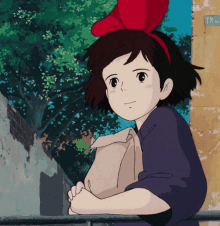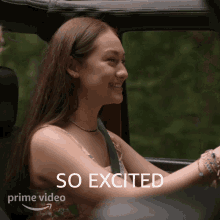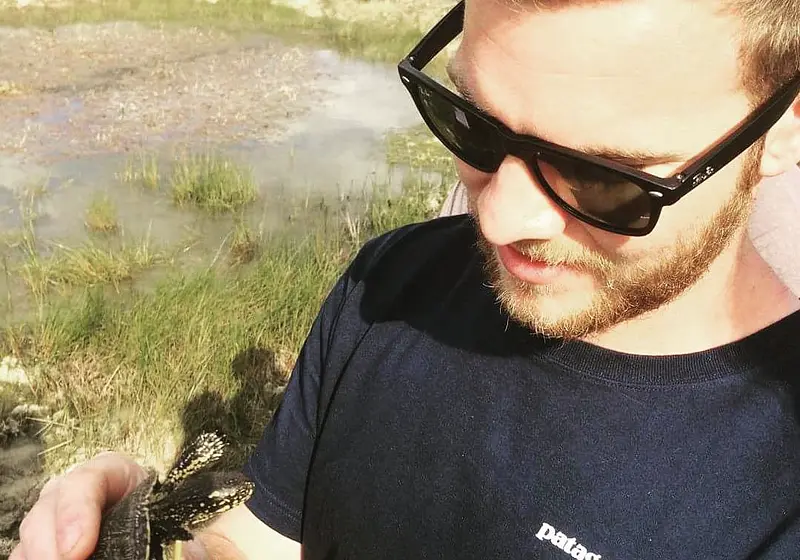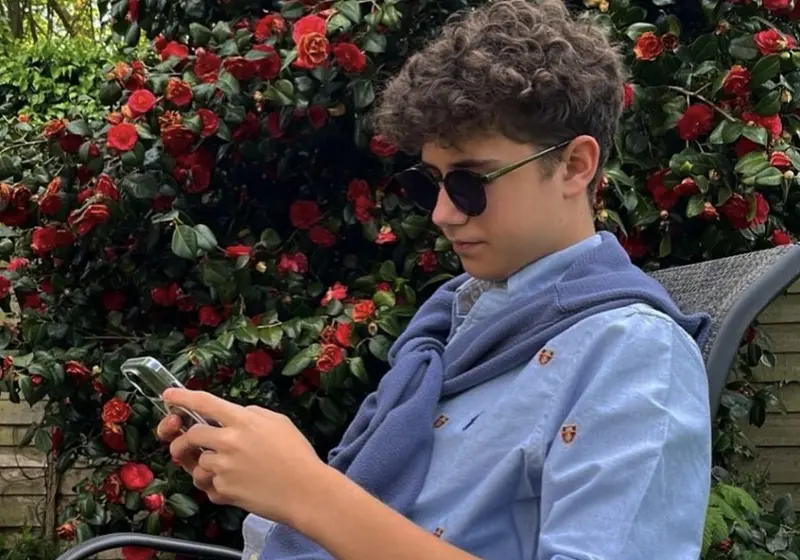Before I begin, I would like to express my sincerest gratitude to Jason Lynch himself for helping me with the editing process of the article, and for making this article possible.
"Failure is your friend." Who would've thought that a teenager, who failed at school without any A-levels (exams that students in the UK in their final year of high school have to take) and at 16 was homeless, would one day have the opportunity to say this? Jason Lynch is one such individual who can. Lynch's life story is one that can be made into a documentary and be shown to people who are on the brink of surrendering and giving up. We have all heard stories that make us laugh, make us cry, make us feel nostalgic.
However, it's not often that we hear a story that truly inspires us. I was part of the six-week Biology Champions online workshop, hosted by the RVC (Royal Veterinary College, London) last year when I heard about Jason Lynch. And as soon as I heard his story, I knew instantly that I had to talk to him personally.
'This is the most inspirational story that you will ever hear!'- you always see these videos floating around the internet, and you simply scroll past them, thinking they are nothing more than clickbait. Well, this story is anything but that.
Let us slide into your dms 🥰
Get notified of top trending articles like this one every week! (we won't spam you)Setting out for the Interview
( A photo I had taken just after I came out of the Baker Street Station!)
Crossing everything in my body that I could, I emailed Jason Lynch, asking whether it would be possible to conduct an interview with him via Zoom. The reply came within a matter of a few days and adding to my elation, Mr. Lynch even invited me to the Zoological Society of London (ZSL), London Zoo, to conduct the interview in person.
So, during the days leading up to the interview, I allowed potential questions to form in my head. "Does this sound professional?". "Does this make any sense?". Thoughts were racing through my mind.
After all, I had never interviewed anyone in my life before. It's one thing holding a water bottle in front of my sister's mouth and her pretending to be an actress, but a completely different matter having to write a script with legitimate questions. Nonetheless, it is all part of the experience, as they say.
Thursday, 9th December 2021. I only had two lessons that day and my teacher had given me permission to leave after my classes. I got out of my school, taking fearful steps of purpose.
To reach my destination- the ZSL London Zoo- I had to take one train and one bus. I arrived at the station, only to find that I was an hour early. Nothing like punctuality.
I took the train to Baker Street Station and caught the bus to Regent's Park Road; however, astonishingly, despite all my efforts to arrive on time at 2 pm, I managed to be late, and that not so fashionably either. You see, I couldn't find our meeting spot.
Jason Lynch came to meet me with Holly Bestley, a Senior learning Officer, standing in for the press team and very graciously gave me a small tour of the zoo, which he continued with after the interview was finished. The weather wasn't too bad in terms of British standards, so we all agreed to conduct the interview outside in a small park in the zoo. Small, circular bistro tables were set out with a couple of chairs on the stony ground, and we randomly chose one to sit around.
The whole setting kind of resembled a beautiful French cafe. Prior to officially starting the interview, I asked Mr. Lynch and the press team for permission to record the audio, to which they said yes. After all the formalities were over, the show had finally started.
Take the Quiz: Which Indian city is the perfect holiday spot for you!?
Let's match you with an Indian city that you would love!
Jason Lynch's Story
(Jason Lynch doing fieldwork in the UK, looking at vegetation and infiltration of water in Morecambe Bay.)
Decorated with an arsenal of academic awards and scholarships, such as (but certainly not limited to) The Environmental Science Outstanding Performance Prize for highest overall grade and The Student Services and Contribution Award, it becomes rather easy to assume that this man's path to success has always been exponential and stable. It's not until his honesty and humility speak through that the world discovers what the truth really is.
It can be difficult to believe that someone like you didn't do well at school. Why do you think that was?
"I don't think I can make excuses because a lot of people do well at school who come from challenging backgrounds. My parents broke up when I was 12 and though I tried to help my mum with my younger siblings, she was under a lot of stress as a single parent raising her kids in a deprived council estate. Money was also tight and we fought lots.
I struggled to concentrate at school and got taken out a couple of times. I didn't ask for help, which, on reflection, is important. Although I had many responsibilities- being the eldest son- at times, I was just in survival mode."
As previously mentioned, you have achieved numerous academic awards and scholarships. However, if one traces back in your lifetime, it wasn't always like this- as you said. If I remember correctly, you dropped out of school and lived in challenging conditions for a long time. From rock bottom, what made you look at life differently?
"I have this one really vivid memory. So, I had just turned 18 and was working for the NHS (National Health Service in the UK) in a dead-end job whilst struggling to support myself and I didn't even have enough money for the bus fare. I was embarrassed and upset and lost......and I thought, "It's quite early in the month and I don't have enough money. What am I doing?
How can I be in this position? What have I done to be here?" I was crying. I was distraught- probably bordering on depression.
"I asked myself, "What do I want to do? What do I need to get there? What's the next very small win for me?" It's the small wins that add up: something I still live by even today."
It is the small wins that add up.
This is a cliche, but I must ask: what has been the biggest life lesson that you have learned?
"I've failed a lot in my life......and oftentimes, failure is the catalyst. I remember how it felt to fail at school and when I was made homeless and when I failed at many of my jobs. I never ever wanted to feel like that again.
It was a deep feeling that went right through my bones. I'm scared of failing again and feeling that way. This drives me."
Jason Lynch recounts the time he achieved his first grade A at university after failing countless times at school and college. He described it as a "great feeling". Getting that A almost began this cascade of academic successes.
Lynch even said that he became "a little greedy" and "obsessed" with doing his best. He didn't want second place, but rather first; he wanted to finish at the top of the academic pile! Sometimes, one needs to fail to realize their full potential, and Lynch finally had.
Academic Work
(Jason Lynch in Canada, digging up dinosaurs. He found this hadrosaur jaw bone with teeth intact on a cliff face, which now resides in the Royal Tyrrell Museum.)
Your Ph.D. title is A social-ecological approach to understanding the footprint of fisheries on tropical coral reef biodiversity in Fiji. It may be slightly cruel of me to ask you to condense countless hours of work behind your Ph.D. into a few words, but could you give a broad overview of what your project essentially entails?
"We're looking at the impact that humans are having on the coral reefs in Fiji......Quite simply, to put it in a sentence or two, it combines both an ecological and sociological approach to understanding what is going on."
Why did you choose both ecological and sociological perspectives?
"Do you think that ecology itself can tell us everything we need to know? Because there are lots of processes happening in any given ecosystem, the role we humans play does have some significant impact......And that's why at the beginning of my Ph.D. when we were having these conversations, we acknowledged that there are indeed lots of ecological studies- just ecological and just sociological studies. So, I thought, "Why not work at the interface?
". To many humans, the coral reefs are their lifeblood: fish provide the main source of protein for much of the population, and small-scale fishing can provide livelihoods for particularly those living in rural Fiji. They are biodiversity hotspots: despite taking up around 0.1% of the global marine environment, they harbor approximately 25% of the world's marine species."
Besides your research, you partake in education as well. You were a Postgraduate Teaching Assistant at Queen Mary from 2018 to 2019, and at University College London from 2020 to the present time. How have you found teaching so far? Do you discover something new about your field every time you give a presentation?
"Every time I give a presentation, I learn that there is something I don't know and that I need to go away and do a bit more research on it. Whether that's something that clicks in my head as I'm presenting, or whether it's a question that somebody asks, and I have to say, "Sorry, I'll get back to you on that." So, there's still lots to learn. We are always learning, and the research is always progressing and evolving.....and teaching is- though it's a bit cliche to say- the best way to learn."
Trivia
(Jason Lynch, during his masters in a saltmarsh in Essex.)
You enjoy cooking. What's your favorite dish to cook and do you like experimenting in the kitchen?
Although Lynch says that he is "no Masterchef", his culinary talents stretch over many horizons; however, his favorite dishes to cook are pies. In particular, he enjoys making pastries and loves experimenting with new flavors and ingredients. His interest in experimenting actually started due to the scarcity of items in his fridge during his university days, and trying to make do with what he had left became his last resort.
Lynch's interests also lie in football (soccer) and his love for the sport even opened doors for him to play internationally at university-level, and he even ended up starring in the Hollywood blockbuster film, The Final Score, as West Ham Football Team's captain.
Message to young people
(Jason Lynch, during his first-year undergraduate in the Cairngorms, Scotland.)
What is your message to the young people of today's generation?
"It's hard not to sound cliche, but based on my own experiences, when you're at your lowest point, it's going to be tough, and should you reach rock bottom, then there's really one way you can go, and that hopefully is up. But, when you're at your lowest, know that you can reach out and get the help that's there. It can set you on another path, and with a bit of hard work, it might allow you to follow your dreams. If it doesn't work out for you the first time, you can try and try again.
"Be sensible about the choices you make and work out a detailed plan so that you're clear with yourself about how you're going to get from A to B. And don't be scared of failing."
That is indeed true. Don't be scared of failing.
Links to websites mentioned in the article and of charities that help vulnerable young people:
RVC: Royal Veterinary College, RVC
RVC, Biology Champions: Biology Champions - Biology Champions - Visit Us - RVC for All - Study - Royal Veterinary College, RVC
ZSL: Zoological Society of London (ZSL) - UK Zoos & Animal Conservation
Young homeless people- Centrepoint: Give homeless young people a future | Centrepoint
Seeking help for mental health problems- Mind: How to seek help for a mental health problem - Mind



















